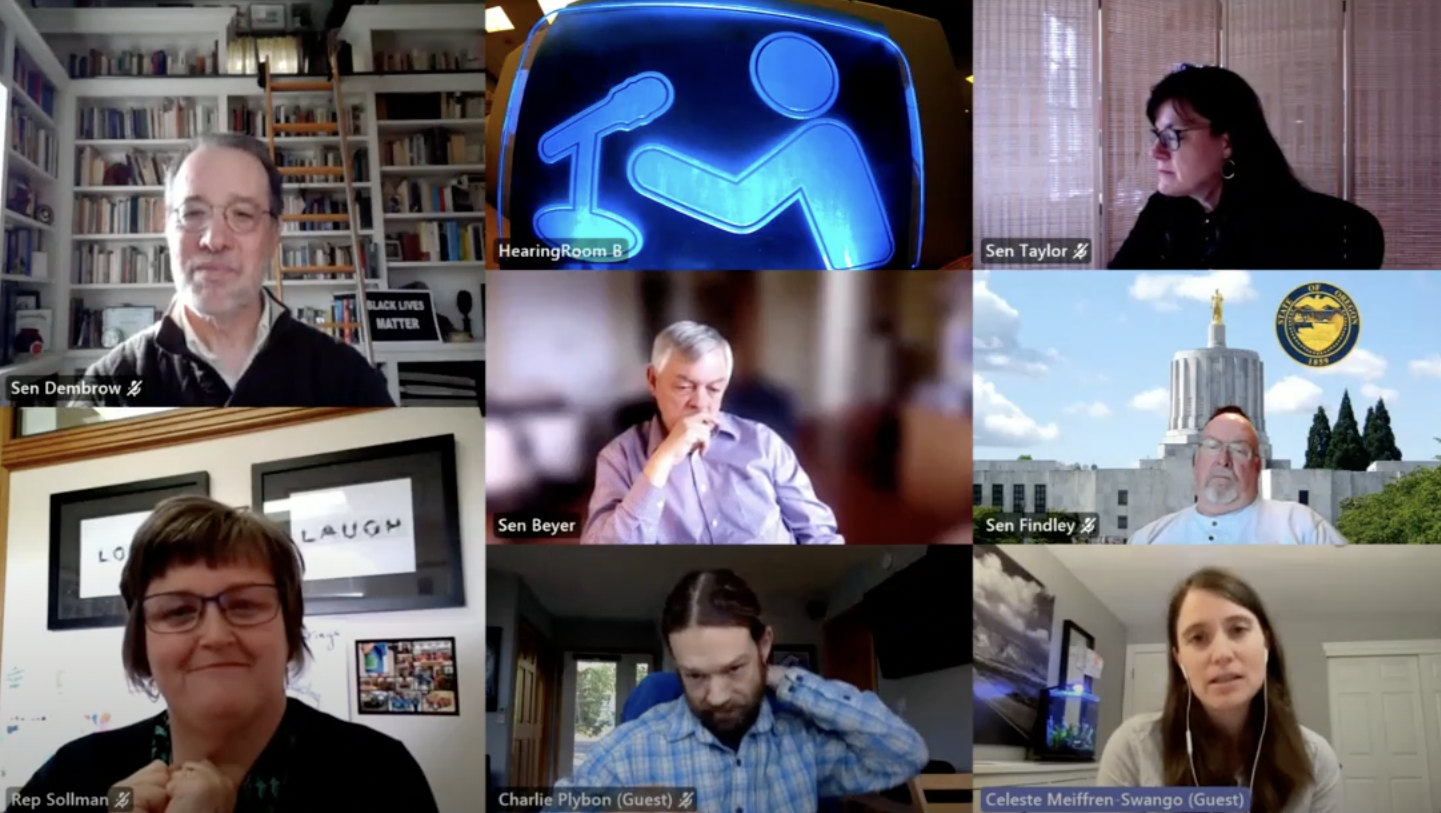Celeste Meiffren-Swango
State Director, Environment Oregon
State Director, Environment Oregon
On February 23, 2021, Environment Oregon’s State Director Celeste Meiffren-Swango testified before the Oregon Senate Committee on Energy and Environment in support of Senate Bill 582-1, a proposed bill to modernize Oregon’s recycling system. To see a snippet of the hearing, including our testimony, you can go here. The full hearing recording can be found here.

Below is the written testimony submitted to the committee:
Senator Lee Beyer, Chair
Senate Committee on Energy and Environment
Oregon Legislature
Chair Beyer and Members of the Committee,
Environment Oregon is a statewide member-based environmental advocacy organization, representing tens of thousands of Oregonians, working for clean air, clean water and open space. Environment Oregon supports Senate Bill 582-1 because we believe it will bring some much needed improvements to Oregon’s recycling system.
Our interest in this bill is rooted in our interest in seeing producers being held accountable for the waste they are creating, especially single-use plastics. Globally, 33 billion pounds of plastic enter the marine environment every year, devastating the world’s oceans. Plastic does not go away, instead it breaks into smaller pieces that can be mistaken for food by marine life. Plastics have been found everywhere we’ve looked; from the deepest trenches of the ocean to the rain in the Rocky Mountains. Oregon is not immune to these impacts. Plastics have been found in Pacific oysters and rockfish off our coast. Plastic pollution is not exclusively a coastal problem. Research in 2019 found microfibers and plastic particles in water samples from the Columbia, Willamette, Rogue, and Deschutes Rivers.
For years, Environment Oregon and many other organizations and individuals have been working to reduce plastic pollution in Oregon, which is an urgent and growing problem for our oceans, wildlife and our communities.
A big reason why plastic pollution is on the rise is because producers are absolved of all responsibility for where their products end up, leaving you and me with limited choices when buying consumer goods and then footing the bill for managing the waste. That fundamentally has to change.
Producer responsibility policies are being developed and considered in several other states across the country, and our report “Break the Waste Cycle” details how producer responsibility policies can benefit consumers and the environment.
We would like to see a full producer responsibility model be considered in Oregon, in which producers are responsible for the full cost of the system, everything from product design, to collection, to processing.
While Senate Bill 582-1 is a shared responsibility model with producers only paying for part of the system costs, and not a full producer responsibility model, it’s an improvement from what we have now, which is a no producer responsibility model. We are supporting Senate Bill 582-1 because it’s a meaningful step in the right direction.
Additionally, we would like to see more emphasis put on waste reduction, especially for single-use packaging and priority single-use products. We know recycling alone can’t deliver all of the environmental protections that we need, especially when dealing with plastic waste. We have to prevent waste at the source. It’s reduce first, then reuse, then recycle. We need to make sure we’re supporting waste reduction in tandem with any recycling program in Oregon.
If your bathtub is overflowing, you don’t start by bailing out the water– you start by turning off the tap. We need to turn off the plastic tap, or the problem of plastic pollution in our environment and in our communities will only get worse.
We hope this committee will consider including meaningful waste reduction targets as part of Senate Bill 582-1.
Thank you for the opportunity to provide testimony on this important issue.
Sincerely,
Celeste Meiffren-Swango
State Director
